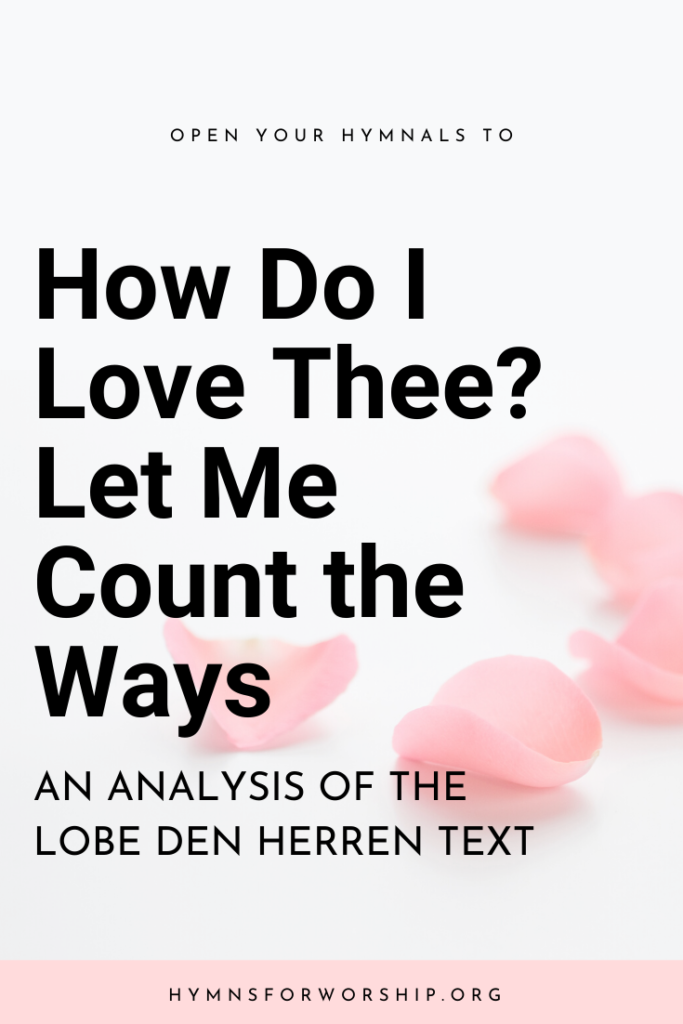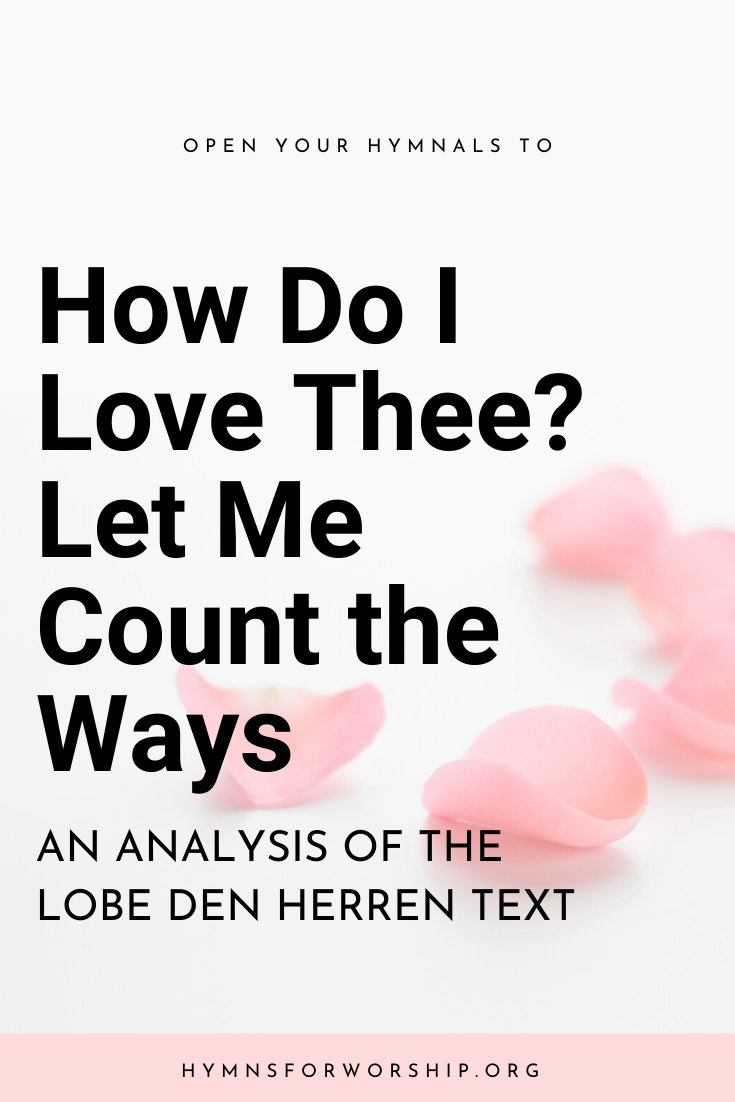
One of Elizabeth Barrett Browning’s most popular sonnets is “How Do I Love Thee” where she lists the depth of her love for her husband through hyperbole, or exaggeration.
Joachim Neander wrote “Praise to the Lord, the Almighty” in the same vein by listing the reasons why we should praise God. However, instead of using exaggeration, he uses metaphors in nature, as inspired by his walks by the Dussel river.
This hymn is definitely abundant in meaning and depth. But as rich as it is, I’d like to elucidate on three main concepts from this hymn.
That God is the King of Creation
In this hymn, Neander establishes that God is the King of creation. David, the Psalmist also acknowledged this fact when he wrote “The heavens are thine, the earth is also thine: as for the world and the fullness thereof, thou hast founded them.” (Ps 89:11).
Then he repeats this idea by writing in the second stanza “who o’er all things so wondrously reigneth.” Isaiah said the same thing, “Then the moon shall be confounded, and the sun ashamed, when the Lord of hosts shall reign in mount Zion, and in Jerusalem, and before his ancients gloriously” (Isaiah 24:23)
That God is a Personal God
After establishing the rulership of God, he goes on to give examples of how the Lord personally relates to each one us. In exquisite rhyming scheme, Neander enumerates, just like Browning’s sonnet, the many ways God extends His love toward us.
- He is our health (Psalm 42:11, 43:5, 67:2; Isa 58:8)
- He is our salvation (Exo 15:2; 1 Sam 2:1; 2 Sam 22:3; 1 Chron 16:35; 2 Chron 20:17; Psalm 18:2, Ps 38:22, Ps 40:16)
- He shields us under His wings (Ps 91:4, Gen 15:1, 2 Sam 22:3, Ps 3:3, Ps 28:7, Ps 33:20, Ps 144:2, Ruth 2:12, Ps 36:7, Ps 57:1, Ps 61:4)
- He sustains us (Ps 55:22)
- He grants our desires (Job 6:8, Ps 20:4, Rom 15:5, Eph 3:16, Rev 3:21)
- He prospers our work (Deut 29:9, 1 Kings 2:3, 1 Chron 22:13, 2 Chron 20:20, Ps 1:3, Isaiah 55:11)
- He defends us (Ps 20:1, Ps 59:1, Isa 31:5)
- He attends to us (Ps 17:1, Ps 61:1, Ps 86:6)
- He befriends us (Exo 33:11, 2 Chron 20:7, Isa 41:8, Matt 11:19, Jam 2:23, Jam 4:4)
That we are called to praise and praise again
As a response now to God’s sovereignty and vested interest on us, we are called to praise.
- First, he makes a general call by beginning each stanza with a “Praise to the Lord”
- Second, he calls to “all ye who hear” and invites them to draw near to His temple (a call to corporate worship)
- Third, he makes an individual call by saying, “Ponder anew, what the Almighty can do.”
To ponder.
It’s not thinking about things in a haphazard way. It’s not hashing out a cliché “thank you Lord for everything!” But rather, a deep reflection of things. A careful, conscious and a deliberate way of thinking.
To make it even more personal, the hymn writer adds the word “anew.” Again, afresh, once more, to do or be again in a new or different but in a more positive way.
Hence, what Neander is really trying to say when he said “Ponder anew what the Almighty can do” is this: To reflect about what God can do in new and different ways, and to do this over and over again.
Let this hymn inspire us to revel in God’s creation and acknowledge Him as the Supreme Creator. Let us not wane in reflecting on the immeasurable goodness of God. And let us always look for unlimited number of reasons to praise His name.
Blessed by this article? Share it!

